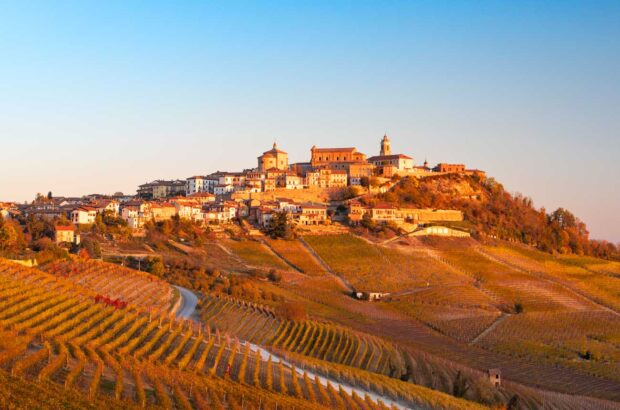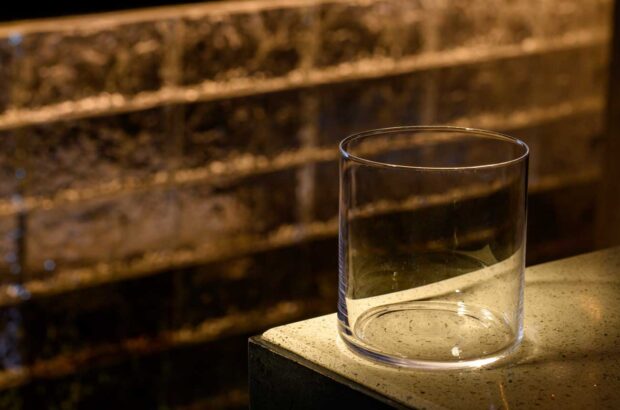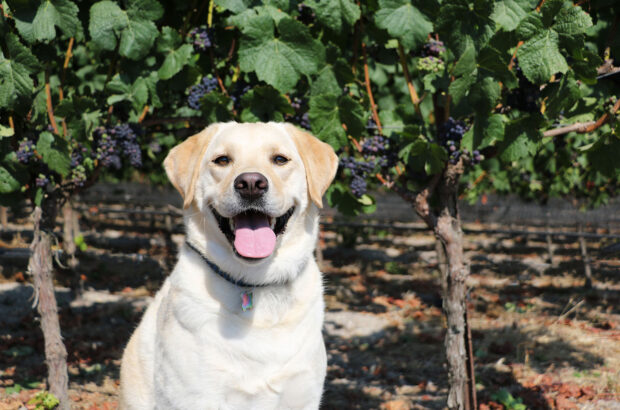Bruno Giacosa, one of the leading lights of Piedmont for several decades, has died in hospital at the age of 88.
Bruno Giacosa died during the night of Sunday 21 January, in Alba’s San Lazzaro hospital, aged 88 years old, according to Italian news outlets. He had reportedly been burdened with ill health for some time.
Giacosa had attained legendary status in Piedmont – as well as across Italy and beyond – having been part of a new wave of winemakers in the region.
‘One of Italy’s greatest wine producers of all time’
He had bought fruit and bottled Barolo and Barbaresco wines since the 1960s, but Giacosa acquired his own vineyard in 1982. His Falletto vineyard in Serralunga d’Alba would go on to become one of the finest crus of the Langhe.
He would later buy Barbaresco vineyards, mostly in Neive, and other prime Barolo parcels, including in La Morra, while also managing vineyards owned by other growers.
From his first apprenticeship at his family winery, Giacosa had showed his propensity for breaking with tradition; he selected bought-in grapes and bottled on the basis of vineyards’ sites.
Giacosa was featured in Richard Baudains’ ‘Italian icons’ article in the February 2018 issue of Decanter Magazine.
‘Behind those dark-rimmed spectacles lies one of Italy’s greatest wine producers of all time,’ wrote Baudains.
‘Giacosa once said that he preferred his wines to speak for him and this perhaps explains his legendary perfectionism.
‘He will never bottle a wine until he considers it ready and will never bring out a vintage unless it completely convinces him, which makes the release of the Vigna La Roche Riserva a truly iconic event.’
He was perhaps most-celebrated for his red-labelled riservas, highlighted as some of the most masterly expressions of Langhe’s regions.
His artful handling of the indigenous Arneis grape has also earned him wide acclaim for his white Roero wines.
Michaela Morris, Italian wine expert and Decanter contributor, told Decanter.com, ‘He had a keen ability to source the very best grapes and was a pioneer of cru bottlings. On a personal level, his wines have contributed equally to my education as they have to my sheer drinking pleasure.
‘His Arneis was the first I ever tried and has always been my reference for this grape. I have been lucky enough to taste examples of his Barolo and Barbaresco going back to 1975. The most memorable bottle was his 1978 Barbaresco Santo Stefano Riserva Speciale. It was served to me blind about 6 years ago and I almost wept for its sheer haunting beauty. When the wine was revealed I believe I did.’
Later years
No Barolo or Barbarescos were bottled from the 2006 vintage, a decision made in 2009 because Giacosa was ‘not satisfied that the Barolos and the Barbarescos produced meet his exacting standards’.
Giacosa had also suffered a stroke in 2006, which had left him unable to properly judge the quality of the wines for some time.
His two daughters, Bruna and Marina, rose to the task of aiding their father in running the estate during his recovery. Winemaker Dante Scaglione left his long-held position at the winery in 2008 to create a consultancy, to be replaced by oenologist Giorgio Lavagna. But Scaglione again started to work with Giacosa from 2011 onwards.
Bruna Giacosa has become known for building on her father’s commitment to single vineyard wines.
The team has so far eschewed 225-litre barriques in the cellar, popular among more modernist producers, but did switch from Slavonian to French oak.
In 2015, Ian D’Agata cited Bruno Giacosa, along with Angelo Gaja, as Babaresco’s leading luminaries.
He credited Giacosa’s 1971 Santo Stefano Barbaresco Riserva Speciale as ‘Italy’s best-ever wine’.
In 2012, Pollen’s University of Gastronomic Sciences awarded Bruno Giacosa the first Honoris Causa degree in its history, with the praise of his peers, Slow Food founder Carlo Petrini and fellow winemaker Angelo Gaja.
Updated 8:30am on 23 January UK time to include comments from Michaela Morris.
Additional editing by Chris Mercer.







